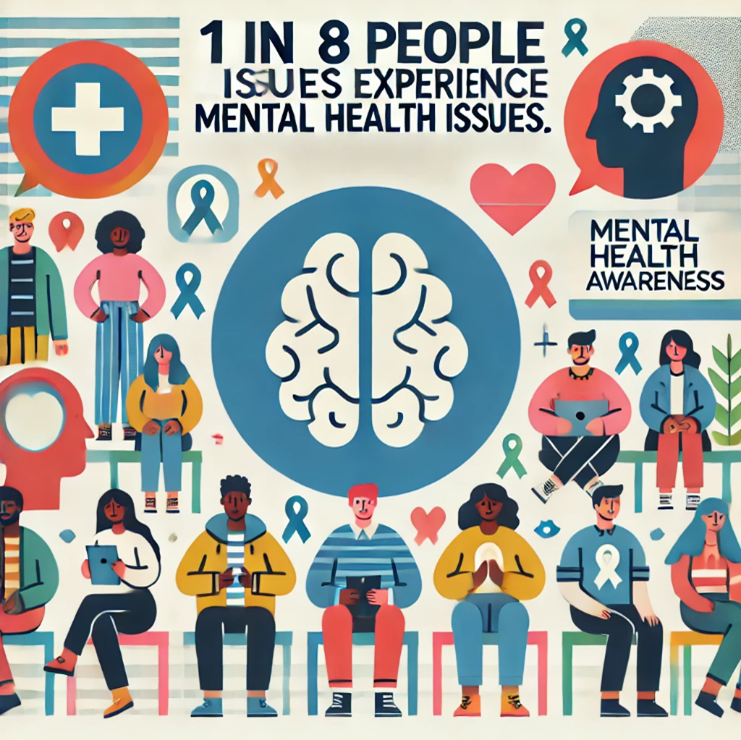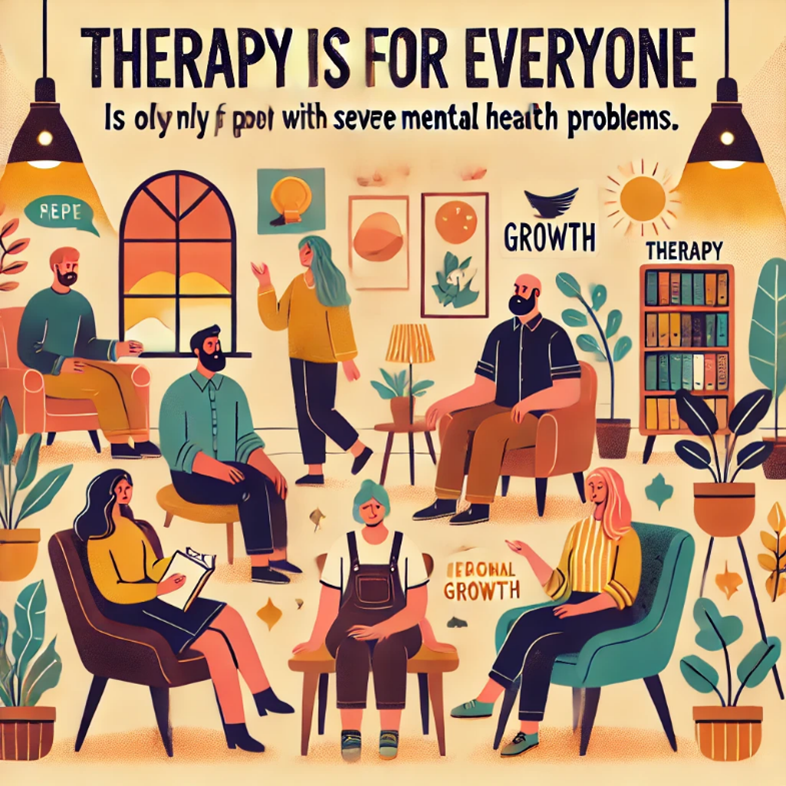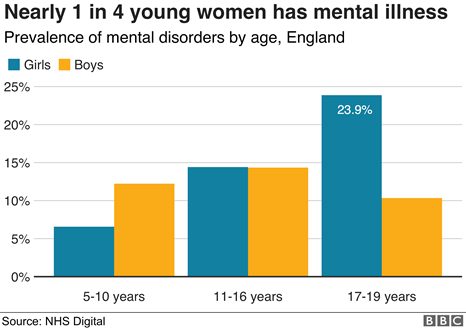What Are the Common Myths About Mental Health?

What Are the Common Myths About Mental Health?
by Maximilian 10:40am Jan 22, 2025

Mental health is a critical aspect of overall well-being, but there are many myths and misconceptions that can prevent people from seeking help, understanding mental health issues, and fostering a supportive environment. Here are some of the most common myths about mental health, along with the facts that debunk them:
1. Myth: Mental health issues are rare.
Fact: Mental health disorders are actually quite common. According to the World Health Organization (WHO), around 1 in 4 people worldwide will experience a mental health issue at some point in their lives. Mental health conditions, such as anxiety, depression, and stress-related disorders, are prevalent across all demographics and can affect anyone.

2. Myth: Mental health problems are a sign of weakness.
Fact: Mental health conditions are not a result of personal weakness. They are medical conditions that involve complex interactions of genetic, biological, environmental, and psychological factors. Experiencing a mental health issue is a human experience, not a reflection of one’s character or strength.
3. Myth: People with mental health problems are dangerous or violent.
Fact: The vast majority of people with mental health issues are not violent. In fact, people with mental health conditions are more likely to be victims of violence than perpetrators. Stigma and stereotypes contribute to fear and discrimination, but these perceptions are not supported by the evidence.
4. Myth: Mental health issues will just go away on their own.
Fact: While some people may experience improvement in their mental health over time, many mental health conditions require treatment or intervention. Untreated mental health issues can worsen and lead to more severe problems. Early intervention and professional support are key to managing mental health challenges effectively.
5. Myth: Therapy is only for people with severe mental health problems.
Fact: Therapy (or psychotherapy) can be beneficial for anyone, not just those with severe conditions. Many people seek therapy to manage stress, improve relationships, cope with life changes, or gain self-awareness. Mental health professionals can provide valuable tools for maintaining well-being, not just for treating mental illnesses.

6. Myth: Medications are the only solution to mental health issues.
Fact: While medications can be an important part of treatment for some individuals, they are often most effective when combined with other forms of treatment, such as therapy, lifestyle changes, and support networks. Mental health care is holistic and may involve a variety of approaches depending on the individual’s needs.
7. Myth: Mental health issues are just "in your head" and not real.
Fact: Mental health disorders have real, tangible effects on both the brain and the body. They involve chemical imbalances, structural changes in the brain, and other physiological factors. Just like physical health issues, mental health conditions require proper care and attention.
8. Myth: Only people who have experienced trauma or abuse develop mental health issues.
Fact: While trauma and abuse can increase the risk of mental health disorders, many people develop mental health issues without experiencing any form of trauma. Genetics, brain chemistry, life stressors, and environmental factors can also play significant roles in the development of mental health conditions.
9. Myth: You can "snap out of it" if you just try harder.
Fact: Mental health conditions often involve complex biological, psychological, and environmental factors that are beyond an individual’s control. Simply trying harder or "snapping out of it" is not a realistic or helpful approach. Treatment and support are necessary for managing mental health conditions effectively.
10. Myth: Children and teens don’t experience mental health problems.
Fact: Mental health issues can affect people of all ages, including children and adolescents. In fact, about 1 in 5 children and adolescents experience a mental health disorder. Early detection and treatment are important to help young people cope with and manage their mental health issues.

11. Myth: Once you are diagnosed with a mental health condition, you are stuck with it forever.
Fact: Many mental health conditions are treatable or manageable with the right interventions. People can recover or learn to manage their mental health issues effectively over time. Mental health is not static, and individuals can improve their well-being through treatment, lifestyle changes, and support.
12. Myth: Mental health disorders are just a phase and will get better on their own.
Fact: While some people may experience temporary emotional distress, mental health disorders are not simply a passing phase. Conditions like depression, anxiety, and others are persistent and require professional care and attention to prevent worsening or recurrence.
13. Myth: People with mental health issues are "just looking for attention."
Fact: People who seek help for mental health concerns are not seeking attention; they are seeking support and treatment for real issues. Mental health challenges can deeply affect an individual’s quality of life, and seeking help is a positive step toward recovery and well-being.
14. Myth: Once you see a therapist, you'll be "cured" instantly.
Fact: Therapy is a process that takes time and effort. It’s not an instant fix, and the pace of progress can vary depending on the individual and the nature of the issue. Consistent therapy, self-care, and lifestyle changes can lead to improvements, but it is often a gradual process.
Overcoming Stigma and Promoting Understanding
Debunking these myths is important in creating a more supportive and informed society where people feel comfortable seeking help and discussing their mental health openly. Mental health is just as important as physical health, and everyone deserves the opportunity to live a fulfilling life, free from stigma and misunderstanding.






